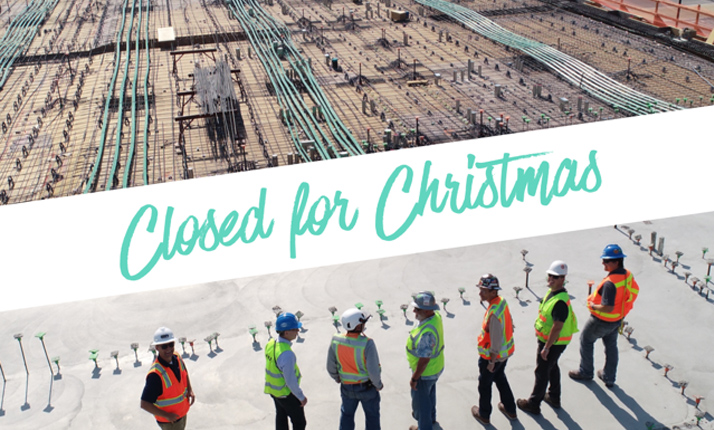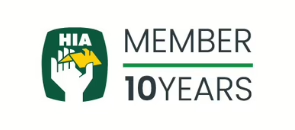The Christmas and New Year’s holiday is fast approaching and can be a well-deserved break for those in the building and construction industry.
Unfortunately, deadlines which fall on or around this period can be a potential source of stress, confusion and conflict for owners, developers and contractors alike and if missed, can result in financial burden.
In this article we set out how contracts and key building legislation in Queensland treats the Christmas and New Year’s holiday shutdown period (Christmas Shutdown Period) and other considerations so that you can have a stress-free break.
Building Industry Fairness (Security of Payment) Act 2017
Building Industry Fairness (Security of Payment) Act 2017 (BIF Act), amongst other things, grants an entitlement to progress payments, establishes a procedure for making and responding to payment claims and enables the use of a statutory charge in favour of subcontractors for the work they do. Notably it covers, timeframes which relate to:
- the establishment of a project bank account;
- when payment/progress claims can be made by contractors;
- when principals or superior contractors must respond (provide a payment schedule) to a payment/progress claim from a contractor;
- adjudication over a disputed payment/progress claim;
- commencing court proceedings over a disputed progress/payment claim; and
- securing payment in issuing a subcontractors’ charge.
The majority of the timeframes imposed by the BIF Act make reference to “business days”. The BIF Act accommodates the Christmas Shutdown Period in Schedule 2 of the BIF Act and defines a business day as not including the following:
business day does not include—
- a Saturday or Sunday; or
- a public holiday, special holiday or bank holiday in the place in which any relevant act is to be or may be done; or
- any day occurring within any of the following periods—
- 22 to 24 December;
- 27 to 31 December;
- 2 to 10 January.
This definition means that, for the purpose of the BIF Act, the whole period between Saturday 20 December 2025 and Sunday 11 January 2026 are not business days.
For example, section 76 of the BIF Act provides that a respondent who receives a payment claim must respond by giving the respondent a payment schedule by whichever the following periods end first:
- the period, if any, within which the respondent must give the payment schedule under the relevant construction contract; or
- 15 business days after the payment claim is given to the respondent.
If the contract is silent on when the payment schedule must be given and a claimant gives its payment claim on Friday 19 December 2025, the respondent will have 15 business days starting from Monday 12 January 2026 to provide its payment schedule.
Failure to understand time periods under the contract or the BIF Act and missing the opportunity to give a payment schedule) can mean the respondent is liable to pay the claimed amount (where the amount is not already paid in full) in the payment claim and can also incur a penalty of 100 penalty units.
Keep in mind, however, the timeframes in the BIF Act, insofar as it relates to dealing with payment claims, needs to be read together with the building contract as these timeframes may differ.
Christmas Shutdown Period in Contracts
Each contract may vary as to how the Christmas Shutdown Period will impact timeframes imposed on the parties. This article cannot cover every contract used in the Queensland building industry as their terms and conditions can vary greatly, however we have set out a few key things to look out for:
Days/Business Days/Working Days
Review your contract to determine whether a timeframe makes reference to “days” or “business days” or “working days”. Contracts may have a definition section either at beginning or the end of the general terms and conditions which may define what “business day” or “day” means.
Delays and Extension of Time
Building contracts often include a clause that allows builders to request a reasonable extension of time due to certain delays to the performance of the works. This clause will set grounds of delay, often referred to as claimable delays that a builder can rely upon when making its request.
This clause may refer to the Christmas Shutdown Period as being a claimable delay and set out the dates for which an extension of time should cover, however the clause will usually require this can only be claimed if it was not reasonably foreseen when signing the contract that works would be ongoing during this time.
If the contract does not expressly refer to the Christmas Shutdown Period, it may allow generally for “another cause of delay which is not reasonably foreseeable and beyond the reasonable control of the builder” or words to that effect. This ground may assist in the situation where the works were required to be completed by November, but there was an additional month of other delays or new variations that pushed the expected completion date into the Christmas Shutdown Period. You should ensure that extension of time claims are made promptly and in accordance the contractual procedure.
Enterprise Bargaining Agreement / Industry Awards
It is also important for construction businesses to review what the relevant construction industry award or enterprise bargaining agreement, if any are in place. These may require employees to take time off during the Christmas Shutdown Period or during certain public holidays.
This should be taken into consideration by builders and adequate timeframes allowed for at the time of negotiating the construction or building period under a building contract.
Checking your Company’s Registered Office/Emails
While your office may be closed, this does not prevent a party from issuing a payment claim or payment schedule or other notices under the contract.
We strongly recommend that someone from your business is responsible for regularly checking your company’s registered business address, principal place of business and emails for any payment claims, payment schedules or other contractual notices.
When in doubt, we would recommend you obtain legal advice about how your contract and the legislation is to be interpreted during the Christmas Shutdown Period.
Our team here at Construct Law Group can assist. Call us on (07) 3139 1874 or email us at info@constructlaw.com.au.
This article is provided for general information and educational purposes only and does not constitute legal advice. Readers should obtain appropriate independent legal advice based on their own specific circumstances.



